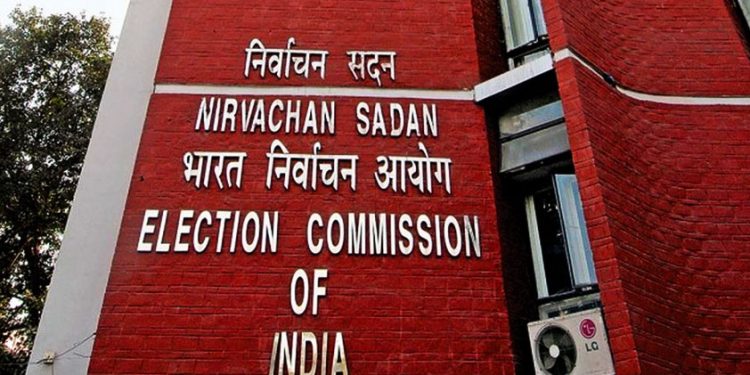New Delhi: The government may not push for passage of the bill on appointment of Chief Election Commissioner (CEC) and Election Commissioners in the five-day session of Parliament that began Monday, sources said amid criticism of its provisions including by the opposition and former chief election commissioners.
They said one view within the government is to refer the bill to the standing committee on law and justice.
The bill was introduced in Rajya Sabha by Law Minister Arjun Ram Meghwal August 10.
Some former CECs, including N Gopalaswamy, VS Sampat and SY Quraishi, had Saturday written to the Prime Minister opposing the provision to equate the CEC and the ECs to the cabinet secretary.
As of now, the poll panel members are equivalent to judges of the Supreme Court.
It is not only status but symbolism that election commissioners enjoy the same status as an SC judge. It showed that while the Judiciary is independent, so is EC, the letter said.
The status of a Supreme Court judge showed the autonomy of the institution, the letter said.
This status should not be taken away as the EC has to hold elections and deal with politicians and bureaucrats, according to the letter.
Opposition leaders spoke against the bill Sunday at an all-party meeting convened by the government on the eve of the Parliament session.
Official sources said there is a view in the government not to take up the bill for discussion and passage in the ongoing session.
The Chief Election Commissioner and other Election Commissioners (Appointment, Conditions of Service and Term of Office) Bill, 2023 had featured among the four bills listed by the government a few days back for being taken up in the session.
However, criticism, including from a few former CECs and ECs, of some of its provisions might have made the government reconsider its decision.
The bill seeks to replace the Chief Justice of India with a cabinet minister in the panel for selection of the chief election commissioner and election commissioners, in a move that will allow the government to have more control in the appointment of members of the poll panel.
The bill also said that salary, allowances and other service conditions of the CEC and ECs will be the same as that of the Cabinet Secretary, a change from their current parity with a Supreme Court judge. Critics have said it amounts to diluting the authority of the poll watchdog.
The Supreme Court had in March ruled that a three-member panel, headed by the Prime Minister and comprising the Leader of the Opposition in Lok Sabha and the Chief Justice of India, will select the CEC and ECs till a law is framed by Parliament on the appointment of these commissioners.
According to the bill, a three-member Selection Committee comprising the Prime Minister, who will be the chairperson, the LoP and a Union Cabinet minister, who would be nominated by the Prime Minister, shall select the CEC and ECs.
The bill was introduced amid an uproar by the opposition parties, including the Congress, Trinamool Congress, AAP and Left parties, that accused the government of “diluting and overturning” a Supreme Court Constitution bench order.
The BJP, however, said the government is well within its right to bring the bill.
“Read the Supreme Court judgment. It had suggested a transient method for appointment of the CEC in absence of a statutory mechanism. The government is well within its right to bring in a bill for the same,” BJP’s IT department head Amit Malviya had posted on ‘X’.
A vacancy will arise in the Election Commission (EC) early next year when Election Commissioner Anup Chandra Pandey demits office on February 15 on attaining the age of 65 years.
“The salary is the same at Rs 2.50 lakh per month. But the CEC and the Commissioners now stand equated to the cabinet secretary and not judges of the SC,” a functionary said on the bill.
He said once the bill is cleared by Parliament, in the order of precedence, the CEC and the ECs will be ranked below a minister of state.
“Since the CEC and the ECs will be equivalent to the cabinet secretary and not a judge of the Supreme Court, they may be treated as bureaucrats. It can be a tricky situation during the conduct of elections,” the functionary felt.
PTI







































